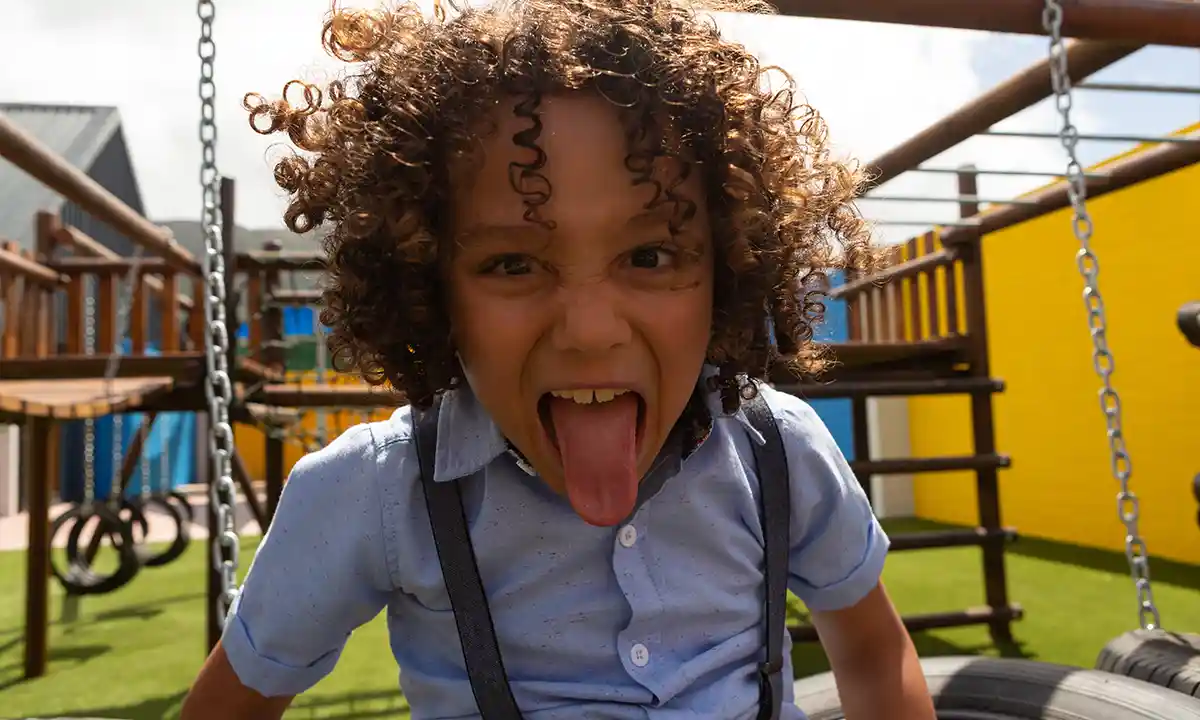Common Questions About Neurodiversity in Children, Answered

Understanding Neurodiversity
Neurodiversity is a way of understanding the natural differences in how people think, learn, and behave. When it comes to children, this concept includes a range of conditions such as autism, ADHD, and dyslexia. These aren’t problems to be fixed but unique variations in how a child’s brain works. Every child processes the world in their own way, and neurodiversity reminds us to appreciate these differences as part of human variation.
It’s important to recognise that neurodivergent children may approach tasks, relationships, and learning differently. This doesn’t mean they’re less capable—it simply means they have their own strengths and challenges. For example, some children may excel in creative problem-solving or show a deep focus on areas of interest. These strengths might not always fit neatly into traditional expectations, but they are valuable and deserve to be celebrated.
Many parents wonder if certain traits or behaviours could indicate that their child is neurodivergent. It’s helpful to remember that children develop at their own pace, and differences in how they engage with the world aren’t necessarily cause for concern. If you notice patterns such as intense interests, alternative ways of communicating, or unique problem-solving strategies, these could simply be part of your child’s individuality. At the same time, seeking advice from professionals can provide clarity and guidance if you have concerns.
Understanding neurodiversity also means recognising that no two children are alike, even if they share a diagnosis. For instance, one child with autism may be highly verbal and enjoy discussing their favourite topics in detail, while another might communicate through non-verbal cues. This individuality highlights the need to view and support each child as a whole person rather than focusing solely on labels.
By adopting this perspective, parents and caregivers can begin to shift their focus from what might be seen as limitations to what makes their child special. Accepting and supporting these differences can help children feel confident in who they are, reducing stress for both the child and their family.
Creating an environment that values a child’s unique way of thinking can make a significant difference. This can involve small changes, like using tailored approaches to learning, offering sensory-friendly options at home, or simply being patient as your child explores the world at their own pace.

Signs of Neurodiversity in Children
Recognising the signs of neurodiversity in children can help parents better understand and support their individual needs. These signs often show up as differences in how a child learns, communicates, or behaves. For example, you might notice that your child has a unique way of approaching problems or a strong focus on particular interests. Some children may prefer alternative methods of communication, such as gestures or visual aids, while others might develop advanced skills in specific areas at a young age.
Each neurodivergent child is different, but there are common traits that some parents observe. For instance, a child with dyslexia might have difficulty with reading or writing but show an exceptional ability to remember information they’ve encountered in a hands-on or informal way. According to a study published in PLOS ONE, children with dyslexia may demonstrate enhanced recognition memory after incidental learning. Similarly, children with conditions like ADHD often display high levels of energy and curiosity, which can lead to innovative ways of thinking or solving problems. Although these traits might not always align with traditional classroom expectations, they are valuable skills that can flourish with the right support.
Some children might also have challenges with handwriting, known as dysgraphia. While this can create difficulties in certain areas, it doesn’t necessarily reflect a lack of intelligence. In fact, research indicates that signs such as dysgraphia might correlate with advanced cognitive abilities in other areas. As reported in Nature News, children with this trait might possess a high level of intelligence. Paying attention to these differences can offer insight into how a child’s brain works and highlight their potential strengths.
It’s also common for neurodivergent children to have a deep interest in specific topics, sometimes to an intense degree. This focus might manifest in collecting detailed knowledge or developing advanced skills in their favourite subject. While it’s easy to think of these behaviours as unusual, they can be a sign of a child’s unique way of engaging with the world and should be encouraged where possible.
Parents often wonder whether certain behaviours or traits indicate neurodiversity or simply reflect a child’s individuality. It’s important to approach this with an open mind, recognising that no two children are the same. If you notice consistent patterns, such as a different way of interacting with others or solving problems, these could be signs of neurodiversity. Observing these traits can help you better understand your child and work towards creating an environment that allows them to thrive.
Supporting Your Child’s Unique Needs
Creating a supportive environment for neurodivergent children starts with recognising and valuing their unique strengths. Children with ADHD, for instance, often display creativity tied to their motivation and specific interests. As noted in the Journal of Attention Disorders, this creativity can shine when they are encouraged to explore areas they are passionate about. Providing opportunities for your child to engage with subjects they enjoy can help them feel more confident and engaged.
Tailoring tools and resources to your child’s needs can also make a big difference. Apps and platforms designed to be calming, intuitive, and accessible—like Big Number Academy—allow children to explore and learn at their own pace without becoming overstimulated. These tools are particularly helpful for children who benefit from structured, yet flexible, learning environments.
Another way to support your child is by being mindful of sensory preferences. Some neurodivergent children may feel overwhelmed by certain sounds, textures, or lights, while others might seek out sensory input. Offering sensory-friendly options at home, such as quiet spaces or tactile objects, can create a calming environment where your child feels safe and supported.
Routine can also play an important role. Many neurodivergent children thrive when they know what to expect. Keeping daily routines predictable while allowing for some flexibility can provide reassurance. Simple visual schedules or written checklists can be effective tools to help your child understand what’s happening next and give them a sense of control over their day.
Patience and understanding are equally essential. Neurodivergent children may need extra time to process new information or complete tasks. Being patient and offering gentle encouragement rather than pressure can help reduce stress and foster a more positive experience for both of you.
Collaborating with your child can also empower them. For example, if they struggle with a particular task, involve them in brainstorming ways to make it easier or more enjoyable. This not only shows respect for their input but also helps them develop problem-solving skills.
Finally, don’t underestimate the value of celebrating small wins. Recognising your child’s efforts, no matter how minor they might seem, helps build their confidence and reinforces the idea that their unique way of approaching the world is both valid and valuable. By focusing on their strengths and finding ways to accommodate their needs, you’re laying the foundation for them to flourish.

The Role of Education
Education can play a big part in supporting neurodivergent children, especially when their unique needs are understood and respected. Schools can offer a more inclusive environment by adapting teaching methods and recognising that children learn in different ways. Every child benefits when their learning style is taken into account, but for neurodivergent children, this can be particularly transformative.
One way to ensure a child receives the right support is by working with their school to create an individualised education plan. These plans outline specific strategies and accommodations to help the child succeed. For instance, a child who struggles with handwriting might benefit from being allowed to use a tablet or laptop for written tasks, while a child who finds it hard to focus could thrive with short, structured activities and regular breaks. The goal of such plans isn’t to single out a child, but to help them access education in a way that works for them.
Open communication between parents and teachers is essential for creating a positive learning experience. If you feel that your child’s needs aren’t being met or that they’re finding school difficult, it’s worth discussing these concerns with their teacher or support staff. Teachers often appreciate insights from parents, as you know your child best. This collaborative approach can lead to practical changes, such as adjusting classroom seating arrangements or offering alternative ways to complete assignments.
Some neurodivergent children may benefit from additional support within the classroom. This might include the presence of a teaching assistant or the use of specialised resources. For instance, visual aids, quiet zones, or sensory tools can make a significant difference for children who process information differently. Many schools are already incorporating these tools into their classrooms, but if they’re not available, discussing their potential benefits with the school could help introduce them.
It’s also important to recognise that traditional measures of academic success, such as test scores or grades, may not fully reflect your child’s abilities. Instead, focusing on their progress and personal achievements can give a clearer picture of their growth. A child who struggles with reading, for example, may demonstrate incredible creativity when expressing ideas through art or storytelling. Celebrating these strengths, even if they fall outside standard academic benchmarks, can boost confidence and motivation.
Some schools are more experienced with neurodiversity than others, and it’s natural to feel unsure if you’re in the right place. If this is the case, don’t hesitate to ask questions about what support systems are in place or whether the school has worked with children with similar needs before. Knowing what resources are available can help you decide if the school is a good fit for your child.
Finally, it’s worth considering that education doesn’t just happen in the classroom. Opportunities for learning outside of school—such as through clubs, workshops, or online platforms like Big Number Academy—can complement your child’s school experience. These activities can help your child explore their interests and develop skills at their own pace, making learning enjoyable and meaningful.
Building Confidence and Self-Esteem
Helping your child develop confidence and self-esteem starts with noticing and valuing what makes them unique. Every child has their own strengths, and focusing on these can provide a strong foundation for their sense of self-worth. This might mean encouraging their love of a particular activity, whether it’s creating art, exploring numbers, or learning about a favourite topic in detail. When children see that their interests are celebrated, it reinforces the idea that they’re valued for who they are.
Praising effort, rather than only focusing on results, is another effective way to build self-esteem. For example, if your child works hard on a drawing or tries a new skill, acknowledge the time and determination they’ve put into it. Comments like “I love how much thought you put into that” or “You’ve worked so hard on this, well done” can go a long way. This type of encouragement helps children feel proud of what they’ve achieved, even if things don’t turn out exactly as planned. It also reminds them that mistakes or setbacks are part of learning, not a sign of failure.
Small, achievable goals can also help foster confidence. For instance, if your child feels overwhelmed by big tasks, break them into smaller steps they can tackle one at a time. Completing each step gives them a sense of accomplishment, making the overall task feel less intimidating. If your child struggles with trying something new, work together to come up with a plan that feels manageable for them. Offering gentle support and guidance can make these experiences less daunting and more enjoyable.
It’s important to create an environment where your child feels safe to express themselves. Pay attention to their thoughts and feelings, and let them know that their voice matters. Listening without judgement shows your child that they’re respected and understood. If they’re feeling nervous or unsure about something, being there to talk things through can give them reassurance and comfort.
Sometimes, confidence can grow through opportunities to take the lead. Letting your child make choices—whether it’s picking a family activity, deciding what to wear, or choosing how to approach a project—gives them a sense of control and independence. When children feel trusted to make decisions, it helps them believe in their own abilities.
Finally, it’s worth remembering that progress doesn’t have to happen quickly. Building self-esteem is a gradual process, and every small step counts. Acknowledging your child’s efforts and showing patience during challenging moments can help them feel secure and supported. Over time, these positive experiences build a stronger sense of confidence that will help your child navigate the world in their own way.

Connecting with Other Parents
Connecting with other parents who are also raising neurodivergent children can make a world of difference. It’s reassuring to speak with others who truly understand the unique joys and challenges that come with parenting a child who sees the world differently. Whether you’re sharing stories about the small victories or asking for advice on navigating particular situations, these connections can provide a sense of solidarity that’s hard to find elsewhere.
Local support groups can be a great place to start. Many communities have meetups or workshops specifically designed for families with neurodivergent children. These groups give you the chance to meet face-to-face with other parents who are experiencing similar journeys. Being able to speak openly in a safe, understanding environment can help you feel less isolated, especially if you’ve been struggling to explain your situation to those who don’t have firsthand experience.
Online communities also offer a wealth of opportunities to connect. Social media groups, parenting forums, and dedicated websites are just a few places where you can interact with parents across the country or even the globe. These spaces can be particularly helpful if you live in an area where in-person groups are limited or unavailable. Online conversations allow you to share advice, ask questions, or simply vent when things feel overwhelming. It’s a reminder that you’re not alone, even when support seems far away.
Sometimes, these connections lead to practical tips or resources that you might not have discovered otherwise. Another parent might recommend a therapist, a book, or a learning tool that worked well for their child, giving you new ideas to explore. Likewise, your own experiences could be just what someone else needs to hear. Simply sharing what’s worked for your family—or what hasn’t—can help another parent feel more equipped to face their own challenges.
It’s not unusual to feel nervous about opening up at first. Talking about your child’s needs or your own worries can feel vulnerable, especially if you’re new to the idea of seeking out a community. But you might find that other parents are more understanding and supportive than you expected. In many cases, they’ll be dealing with similar feelings and can relate to your experiences on a personal level. This mutual understanding is often what makes these relationships so valuable.
You may also come across opportunities for your child to make connections. Some support groups and events include activities for children, creating spaces where they can meet peers who share similar experiences. This can be a great way for your child to feel seen and understood, while also building your own network of supportive relationships.
Building connections with other parents doesn’t have to be a big commitment. Even a single conversation can provide encouragement and help you feel more confident in your journey. Sometimes, just knowing that there’s someone out there who gets it can be enough to lighten the load.
Looking After Yourself as a Parent
Parenting a neurodivergent child comes with its own set of rewards and challenges, which is why looking after your own well-being is so important. It’s natural to put your child’s needs first, but prioritising self-care is essential for maintaining your own emotional and physical health. When you’re feeling well-supported, you’re better able to support your child too.
One of the simplest ways to care for yourself is by setting aside even small amounts of time to recharge. Whether it’s enjoying a cup of tea in peace, reading a book, or taking a short walk, these moments of calm can make a big difference. Many parents find that scheduling this time, even if it’s just ten minutes a day, helps ensure it actually happens.
Building a support network can also ease the emotional load. Whether it’s talking to a partner, a trusted friend, or joining a group for parents of neurodivergent children, having someone to share your thoughts with can help you feel less isolated. These conversations often provide practical advice and emotional reassurance, reminding you that you’re not alone in navigating your child’s needs.
Setting realistic expectations for yourself is equally important. It’s easy to feel pressure to do everything perfectly, but parenting isn’t about perfection—it’s about doing your best. Accept that it’s okay to have off days or moments of frustration. Recognising this can take some of the pressure off and make things feel more manageable.
If you find that stress is building up, it can help to focus on activities that you personally enjoy or that help you relax. For some, this might mean getting outside, exercising, or practising mindfulness. For others, it could involve creative hobbies or simply watching a favourite film. Whatever works for you, try to treat this time as an important part of your routine rather than something optional.
Many parents also benefit from learning to say no when they need to. If commitments start to feel overwhelming, it’s okay to step back or ask for help. Family members, friends, or even local community services might be able to share some of the load, giving you more room to focus on what truly matters.
Finally, be kind to yourself. Parenting a neurodivergent child is a journey, and there will be ups and downs along the way. Acknowledging your efforts, rather than focusing on what you think you “should” be doing, can go a long way towards feeling more balanced and supported. Remember, taking care of yourself is part of taking care of your child.